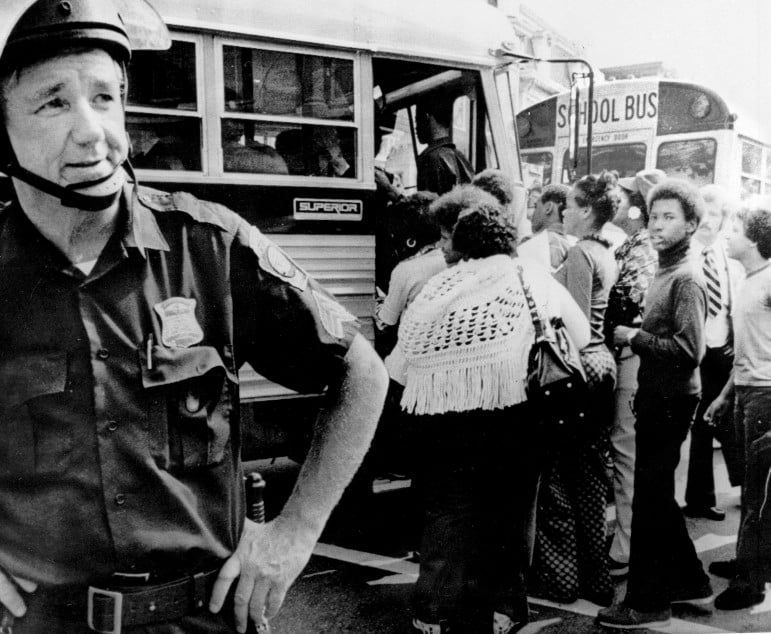In 1974, a federal court ruled that school assignment of children in the City of Boston was in violation of the 14th amendment of the United States Constitution. As a result, a plan was implemented that called for children to be bused outside of their neighborhoods to schools in different areas of the city. There were a range of responses to this event, but perhaps most remembered are the violent protests, boycotts, and tensions that plagued the city throughout the school year.
As the United States becomes more and more racially diverse, it is more important than ever that students consider people from different backgrounds and build relationships based on mutual respect and shared understanding. For nearly 40 years, Facing History and Ourselves has helped educators in Boston examine the challenges of overcoming a local, as well as a national, history of segregation and civil rights, while at the same time helping teachers create educational opportunities for all students.
When teaching a history with a watershed moment like the story of busing in Boston, we often suggest focusing on the context and individual decisions that led up to the event. By looking at the choices individuals, groups, and leaders make before a crisis, we can investigate how these different choices ultimately affect communities—in history and today.
Investigating the layout and demographic makeup of the city in the 1970s can help give students historical context. You might give students a map of Boston and its surrounding communities and show them where different people lived and how resources were allocated in the 1970s. In doing so, ideas such as de jure and de facto segregation—important terms in the court's decision on Boston Public Schools—will bubble to the surface.
Another idea is to put the history in the hands of your students by giving them images, important dates, and quotes. Ask them to organize the events leading up to the busing crisis in chronological order, to summarize each event, and to use images that further illuminate what happened. This will illustrate all of the different steps communities in Boston took before busing began, and help them understand why the situation was much more complicated than a court decision and a tumultuous school year; that it was result of years of racial tension in the city and a decade-long struggle to address inequity in Boston Public Schools.
Recently, the Boston Globe published never before-released oral histories from this time in Boston history. Collected by students at Emerson College, these stories bring new voices and perspectives. Oral histories can be great tool for engaging young people in the classroom. Here are some questions you and your students might reflect on when listening:
- What is similar about each individual’s experience?
- What is different?
- Whose voices are represented?
- Whose voices are missing?
- How does oral history both enhance and limit our historical understanding of an event?
This is not a history with simple answers, or even a clear beginning and end. Our students in Boston, and students in similar communities throughout the country, are still living with both positive and challenging legacies from this time in American history. But activities like these help shed light on how we are all connected, together, to Boston's history.
Find more resources on teaching about civil rights and busing in Boston.
On October 16, Facing History and The Boston Globe Foundation’s News in Education (NIE) program will host "40 Years Later: The Legacy of Boston Busing," a day-long conference for educators featuring New York Times-bestselling author Michael Patrick MacDonald. The conference will be followed by a community event featuring speakers who experienced this pivotal moment in local and civil rights history firsthand. The conference and community event will examine the context, decisions, choices, and legacy of the 1974 federal court ruling that school assignment of children in the City of Boston was in violation of the 14th amendment of the constitution. Both the conference and the event are part of Facing History's continuing partnership with the Boston Public Schools to create curriculum and professional development for teachers on civil rights throughout the district.
We will be live tweeting throughout the day! Follow along with hashtag #FHCivilRights!


